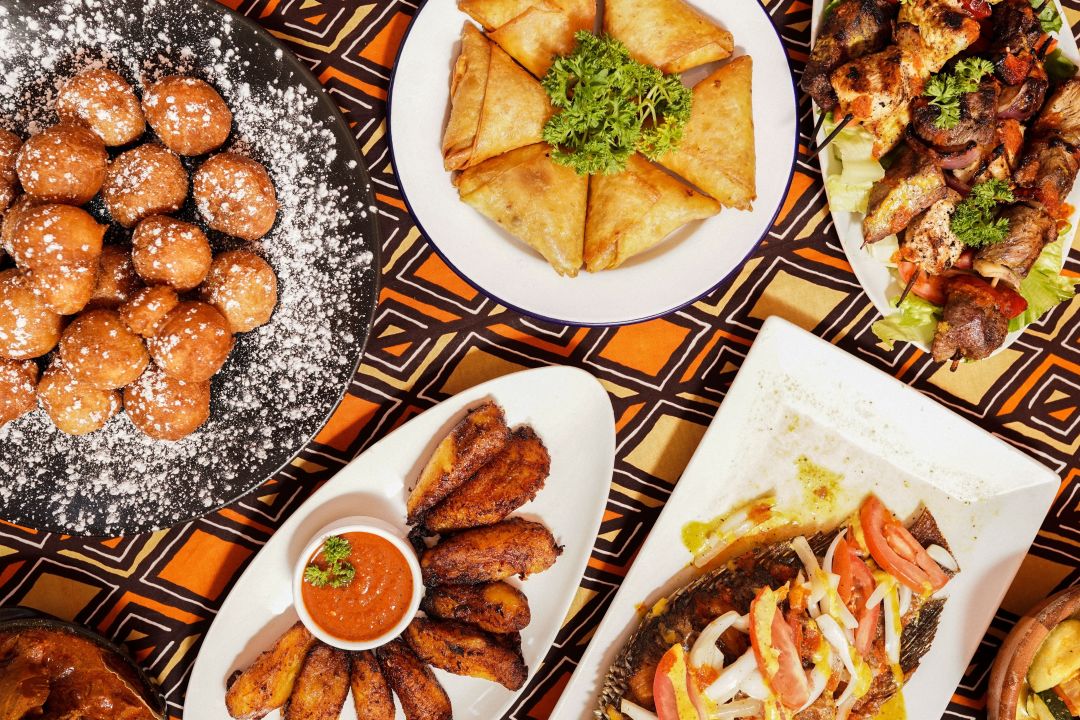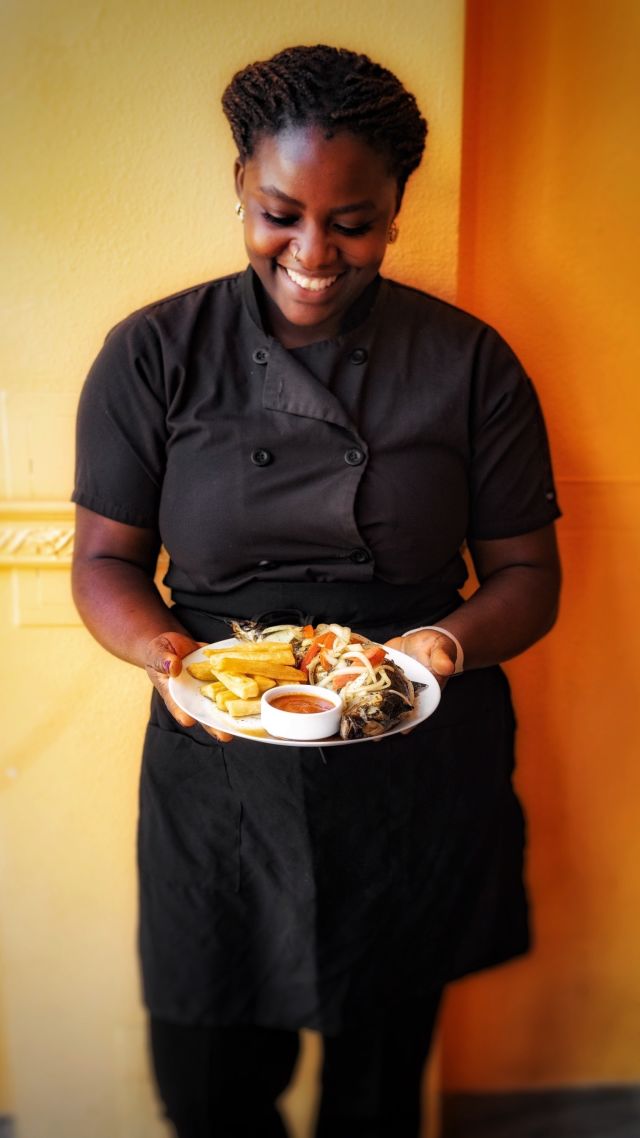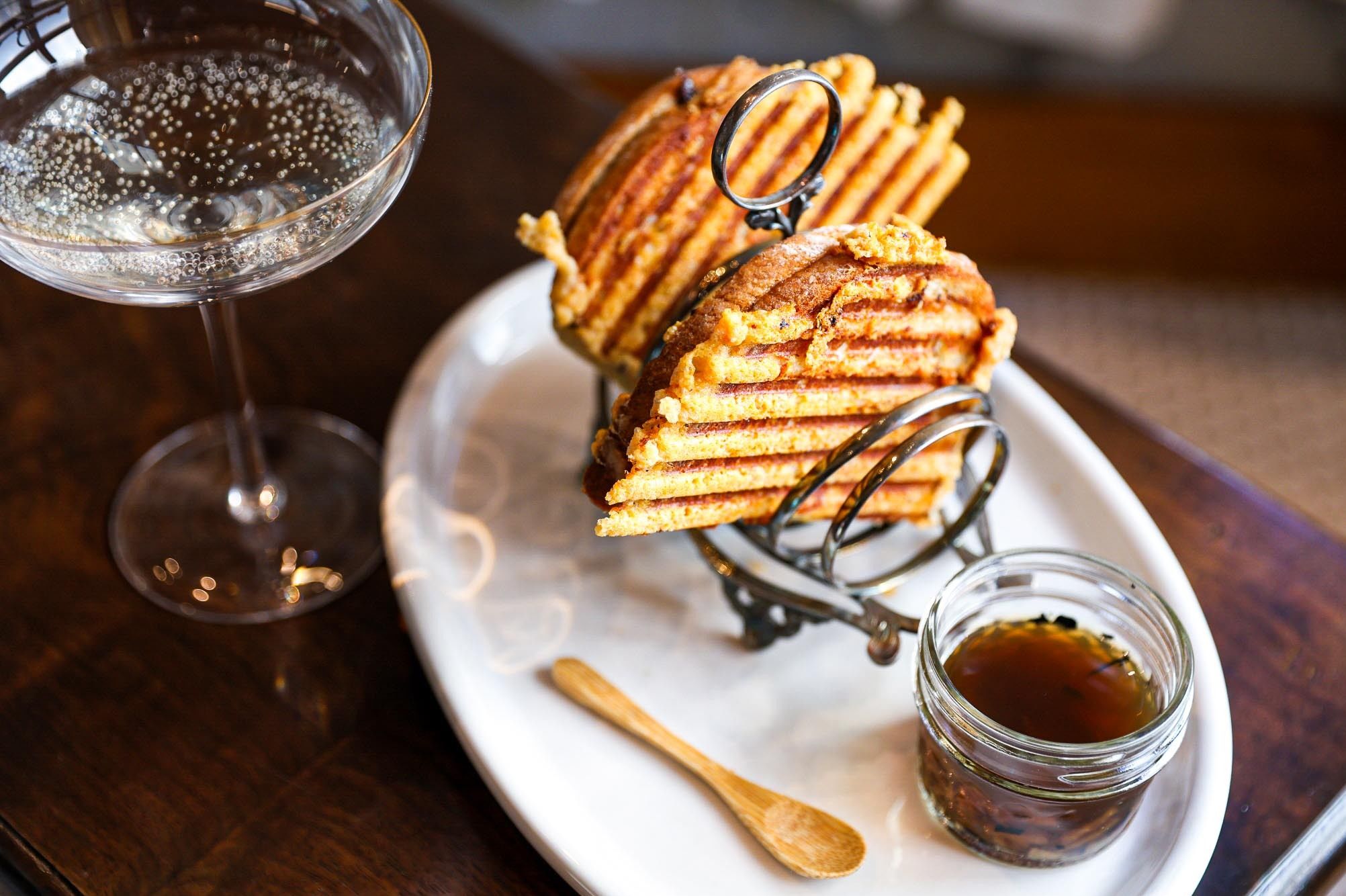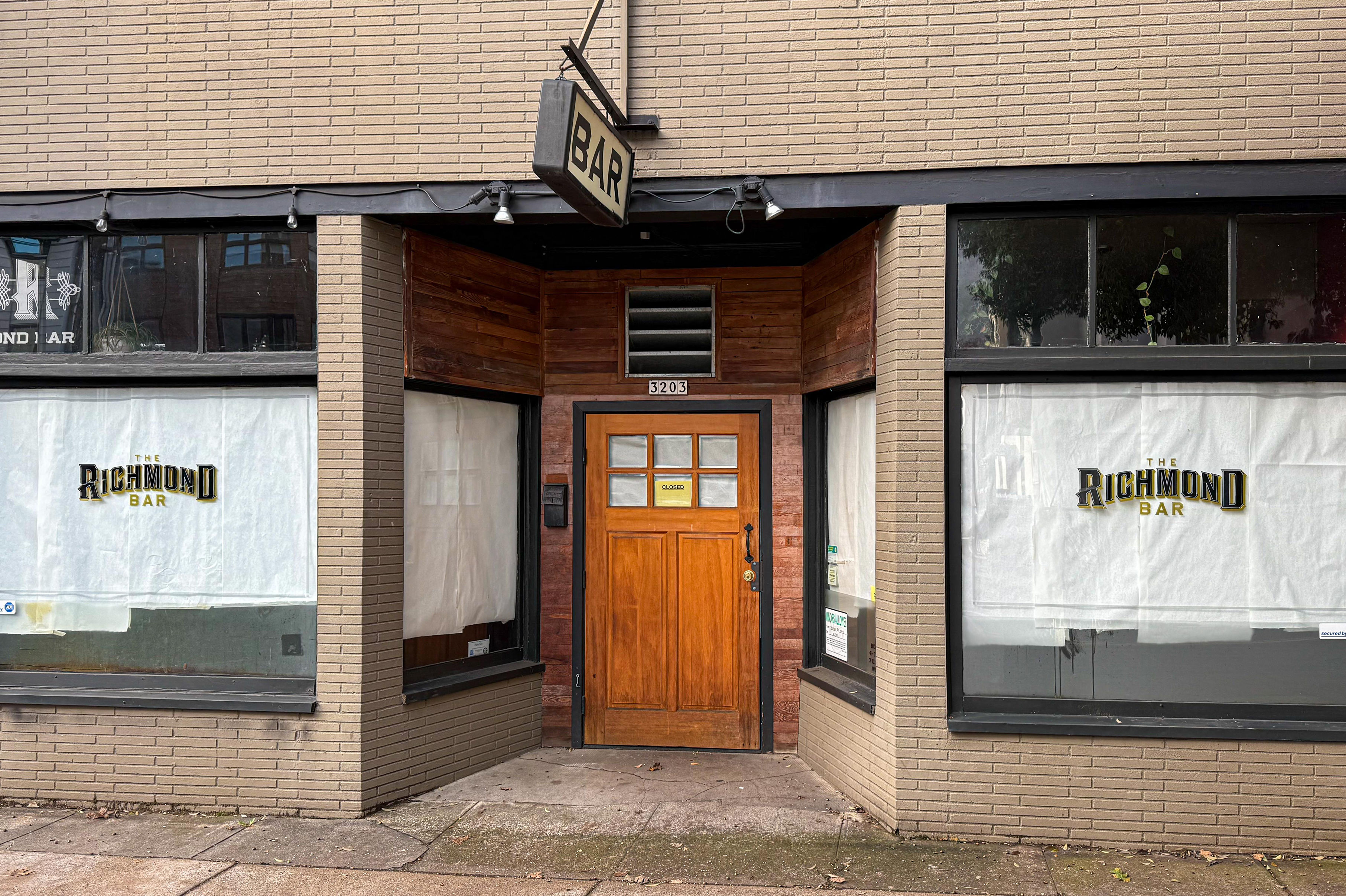Akadi Will Close December 31, But Promises To Return

Akadi offers dishes from the Ivory Coast, Burkina Faso, Nigeria, and Ghana. Owner Fatou Ouattara is temporarily closing the restaurant so she can further expand the menu.
Image: Courtesy Christine Dong
Attention fufu fans and peanut butter stew stans: Akadi, one of the few West African restaurants in Portland, will close temporarily on December 31. But don’t fear—the restaurant plans to make a big comeback as early as June 2021.
Chef and owner Fatou Ouattara attributes the closure to a number of factors. She’d been planning to expand the restaurant prior to the pandemic, since the current location’s kitchen on NE MLK was too small to efficiently serve the 200 customers it can seat indoors and outdoors at full capacity. But Ouattara says business was down 60% during the pandemic, especially since the shutdown meant no more catering events like weddings and African cultural events at local universities. Ouattara laid off ten of her twelve employees during the shutdown. The likelihood of expanding in 2020 seemed nearly impossible, so Ouattara is stepping back for the next several months and plans to reopen the restaurant sometime in late 2021 in a bigger location. The loyalty of her customers, plus a grant from Prosper Portland, meant that Akadi was able to go on hiatus rather than close permanently. “It was really impressive to see how the community got together to make sure we didn’t close,” says Ouattara.
Thankfully, customers don’t have to wait until Akadi returns to get a taste of the restaurant’s food. Starting in January 2021, Green Zebra Grocery will begin carrying vegan dishes from Akadi in its deli section, as well as the restaurant’s bottled hot sauce (complete with labels designed by Portland art gallery Fisk Projects).
Ouattara is taking this opportunity to step away from busy restaurant life to return to the Ivory Coast, where she grew up and where much of her family lives. “After five years of not being there, I miss the family,” she says. But this trip isn’t just for family time—it’s also a time for Ouattara to hone her cooking skills and expand her culinary horizons.

Ouattara will spend several months honing her culinary skills in rural villages in Africa.
Image: Courtesy Chelsea Cole
“This is actually the perfect time to go get more recipes, expand the menu, and include other countries on the menu,” Ouattara says. Right now, the menu at Akadi focuses on food from her native Ivory Coast like attieke poisson (fried or grilled whole fish with grated, fermented cassava), plus a number of dishes from Burkina Faso, where her mother grew up, such as peanut butter stew and shosho (black eyed pea stew). There are a few dishes from other West African countries including Ghana and Nigeria on the menu, too, but customers have been requesting more Nigerian and Ghanaian dishes.
On her trip, Ouattara plans to refine her Ivory Coast and Burkina Faso dishes with her mother and grandmother in the kitchen. She’ll also head to rural villages in Nigeria, Ghana, and even South Africa, spending about a month in each country so she can learn more recipes to bring back to Akadi. Asked why she’s venturing to small villages rather than big cities, Ouattara replies:
“The best dishes in Africa, that’s where you find it. You have to go deep into the village where people barely speak English. When you go to the city side of things, it mixes a little bit with colonization, and white people coming in, and some spices coming in, depending on which country colonized. If you go into the capital city, you find places that have things like Dijon mustard, which I serve at the restaurant.... But what I’m trying to do is keep it all traditional.”
It’ll be hard to find many of the ingredients she needs for these traditional dishes, Ouattara acknowledges. But she’s planning to change that, too, by bringing back seeds and working with local Portland farm Happiness Family Farm to grow crops like cassava leaves and jute leaves. There’s a bit of culinary exchange involved, too: Ouattara is going to bring CBD oil (Oregon-grown, if possible) to the Ivory Coast with her and, with the help of her mom and grandmother, will experiment with replacing the traditional palm oil with CBD oil in her recipes.
While the new Akadi promises to be bigger, with a wider array of dishes than before, the old location isn’t going away. Ouattara plans to turn that space into a test kitchen, where she’ll continue to hone her recipes. It’ll also be a cooking school offering free classes to local high school students who are interested in food. “In culinary school, I don’t think they teach any West African food, or any African food at all,” Ouattara says. The school will also offer classes for the children of West African immigrants to maintain connections to their culinary heritage. “For the immigrants that come to the US and don’t have time to teach their kids, that can be the place where they come to learn the food and recreate the African holidays that we still celebrate.”




